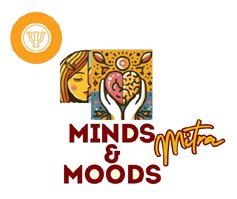A Scientific Compass for Your Career: Understanding Psychometric Counselling 🧭
Choosing a career is one of the most important decisions a person can make, and it’s often fraught with uncertainty. Psychometric counselling is a modern, scientific approach to career counselling that uses standardized tests to objectively measure an individual’s unique psychological makeup. By assessing a person’s abilities, interests, personality traits, and values, a psychotherapist or a career counselling psychologist can provide data-driven insights to help clients make informed and fulfilling career choices.
A Trusted Professional in Nagpur: Rrimi Bodalkar
For individuals in Nagpur, Rrimi Bodalkar, a Sr. Psychotherapist / Mental Health Counsellor, is a highly respected professional in the field. With her M.A. in Psychology (Counselling) and PGDMH (Clinical), she offers a comprehensive approach to career and mental wellness. Her certification in Psychometric Analysis & Learning Style Assessment makes her particularly skilled at using psychometric tools to provide accurate and insightful career guidance. Specializing in CBT, REBT & DBT, Rrimi Bodalkar is well-equipped to help clients with a wide range of issues, from managing workplace stress and anger management to providing effective relationship counselling. Her expertise ensures that clients receive not just career advice but holistic support for their personal and professional growth.
Why is Psychometric Counselling Needed?
The need for this type of specialized counselling arises from a variety of factors, and the symptoms that suggest it may be beneficial include:
- Career Confusion: Feeling lost or unsure about which path to take, especially after a major life transition or during a period of professional stagnation.
- Job Dissatisfaction: Experiencing a lack of motivation or a sense of burnout, which can lead to workplace stress counselling needs.
- Misalignment: Feeling that a current job or academic path doesn’t align with one’s true interests, skills, or personality.
- Lack of Self-Awareness: Not fully understanding one’s own strengths, weaknesses, or how personal traits impact professional success. This often relates to a need for broader personal counselling or personality development counselling.
The causes for these issues can be a lack of information, societal pressure, or a mismatch between a person’s inherent traits and their chosen profession. This can also lead to more serious issues like depression, and a depression therapist may be part of the solution.
The Procedure of Treatment: A Data-Driven Journey
The procedure of treatment in psychometric counselling is a structured process that moves from assessment to action.
- Comprehensive Assessment: The client takes a series of scientifically validated psychometric tests. These assessments are not a single exam but a suite of tools that measure various dimensions, including:
- Aptitude Tests: Measuring cognitive abilities like numerical reasoning, verbal comprehension, and logical thinking.
- Personality Assessments: Evaluating traits like introversion/extroversion, conscientiousness, and emotional stability.
- Interest Inventories: Identifying hobbies, passions, and activities that align with specific career fields.
- Learning Style Assessment: Determining how a person learns best, which is crucial for choosing the right educational path.
- Expert Interpretation: A qualified psychologist or counsellor analyzes the test results. They don’t just hand over a report; they interpret the data in the context of the client’s life, experiences, and goals. The counsellor connects the dots between different test scores to provide a holistic profile.
- Personalized Counselling: Based on the results, the counsellor provides tailored guidance. This may involve exploring potential career paths, discussing educational requirements (academic stress psychologist), and developing a concrete action plan. The counsellor may also use other therapeutic approaches like Cognitive Behavioral Therapy (CBT) to address negative thinking or low confidence that may be holding the client back.
Frequently Asked Questions (FAQ’s)
Q1: Are psychometric tests accurate?
A: Yes. When administered and interpreted by a qualified professional, psychometric tests are highly reliable and valid. They are standardized tools that provide an objective, data-driven assessment, reducing the bias that can occur in traditional career discussions.
Q2: Is psychometric counselling only for students?
A: No. While it’s very popular for students choosing a stream after 10th grade, it’s also incredibly valuable for adults considering a career change or seeking to advance in their current field (Executive coaching).
Q3: What’s the difference between a psychometric test and an IQ testing psychologist?
A: An IQ test is a specific type of psychometric test that measures intellectual ability. However, a full psychometric assessment for career guidance is much broader, measuring a person’s interests, personality, and values in addition to their cognitive abilities.
Q4: Can this help if I am also dealing with a mental health issue like depression?
A: Yes. A skilled psychotherapist can integrate career counselling with other therapies. For example, if negative thinking is impacting your career choices, a counsellor specializing in CBT can help you address both issues simultaneously.
Q5: What if the test results don’t align with what I thought I wanted?
A: This is a common experience. The purpose of psychometric counselling is to provide new insights. The results serve as a starting point for discussion, helping you explore different options and understand yourself better. The counsellor will work with you to find a path that is both personally fulfilling and professionally viable.

